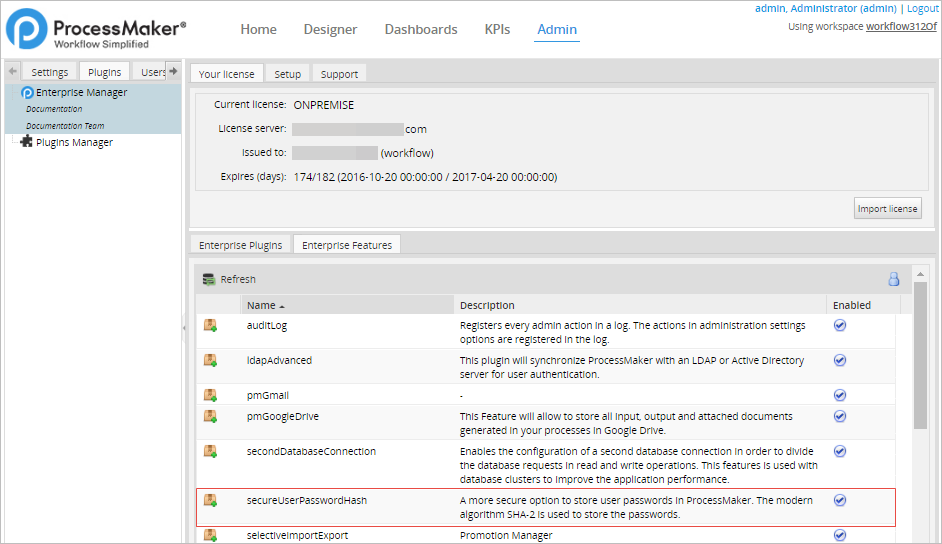Main Menu
Processmaker Cracked
вторник 04 декабря admin 45

YouTube Premium Loading. Get YouTube without the ads. No thanks 3 months free. Find out why Close. ProcessMaker 2.5 Beto Colosa. Unsubscribe from Beto Colosa? Cancel Unsubscribe.
ProcessMaker was launched as an open source project in 1998. From our very first downloads on SourceForge in early 1998 to the many projects we now host on Github, we have found that open source is the best way to produce world-class software. Having an open source culture allows people from all around the world contribute to make our community great. With more than 10,000 members in our forums, ProcessMaker has a rich ecosystem of developers, enthusiasts, and business users that contribute ideas, help track issues, produce language packs, create extensions and plugins, and much more. • - A next Generation BPMN 2.0 compliant BPM Suite. ProcessMaker is a highly scalable, highly resilient workflow and bpm software suite designed for midmarket and enterprise customers.
The ProcessMaker Enterprise Edition is built on top of our open source edition and extends it with features and functionalities that we believe will be useful for true enterprise grade utilization. • - A core BPMN 2.0 workflow engine built in PHP.
• - A suite of connectors which can be embedded to produce an integration-as-a-service platform. For those looking to support large-scale business critical environments, includes a professional support package, and features focused on improving scalability and high availability.
Additionally, the Enterprise Edition comes with which greatly enhance productivity and security.
Is the BPM Industry and the way of selling BPM Software broken? The BPM software industry and the BPM Software selling model is broken and in need of change. Here are 5 reasons that the BPM industry is ripe for reinvention: • 50 Billion Connected Devices – Everyone talks about the.
We are about to jump from a world of 6 billion connected devices to a world of 50 billion connected devices by the year 2020 according to most analysts. IoT companies are springing up like weeds everywhere as a result. BPM software will play a big roll in the connected world. There will be more and more iPaaS players that connect API to API but there will also be a tremendous need for more intelligent processes.
That is what BPM provides what the iPaaS do not. But there is a big problem – the BPM software on the market today simply cannot scale to these levels efficiently. Most BPM companies have built their software based on the same Java based engines or copied the concepts and architectures of those engines. These are engines that were architected more than a decade ago.
They are not architected to scale well, they consume too many compute resources to be cost effective, and they are prone to the security issues of Java. These engines were designed to digitize paper processes.
There are still plenty of paper processes that need to be digitized and no shortage of work for BPM providers. But Digital Transformation is about something else. It will require a paradigm shift in the world of BPM Software. The process and workflow engines of tomorrow will need to be infinitely scalable, resilient, fully distributed, and able to handle millions of transactions per second.
• Micro Value Compute Economics – To be successful in the world of tomorrow, BPM software will have to be prepared for Micro-value compute economics. Ramayan 3392 ad reloaded download. AWS changed the software business forever by reinventing the way people pay for software.
Most software industry verticals have not yet figured out how to react. Many software companies think that they are running a cloud business because they now run their software on AWS, Azure, or Google Compute. Users don’t buy servers anymore and they can sign up online to try a service. That is great.
But SaaS software is more than a decade old. If this is your cloud strategy, you are missing the entire paradigm shift that is happening today.
